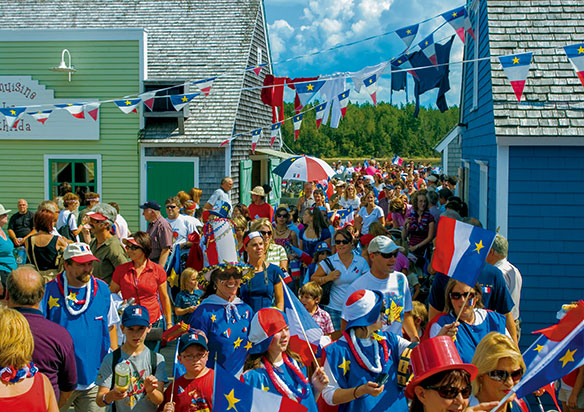
A value beyond the economics
A conversation with Destination Canada’s Marsha Walden

BOB MOWAT
“I believe Canadians are truly coming to understand the profound influence the visitor economy has on our lives and our communities. Tourism brings value far beyond its economic contribution,” Destination Canada’s new resident and CEO, Marsha Walden observed in a conversation with Canadian Travel Press this week.
What’s it like to start a new job in the middle of a global pandemic? And, perhaps more specifically, what’s it like to start a new job running a national tourism organization in the middle of a global pandemic?

Walden
This is a devastating time for our industry and I know we have a long road ahead of us. We will need a smart recovery strategy that utilizes the strengths of every part of our tourism ecosystem – a deep collaboration with our partners and our industry. I believe Canadians are truly coming to understand the profound influence the visitor economy has on our lives and our communities. Tourism brings value far beyond its economic contribution.
You’ve been the president & CEO of Destination British Columbia since 2013, I’m wondering, as you move from a provincial to a national role, are there lessons that you’ve learned at Destination BC that you’ll be able to apply at Destination Canada? Can you give me some examples?
I think every environment needs its own solution and I’m trying to have a clean slate and open mind as I enter this new role. There were a number of things that we initiated in Destination British Columbia that are long-term solutions that may very well work at Destination Canada, specifically digital readiness as well as our destination development strategies. There were many lessons, but I don’t expect a cookie cutter solution that will work at a national level. We will build on the work that’s been done and create a competitive national approach.
Can you bring Canadian Travel Press’ readers up to speed on where the Canadian tourism industry is at right now? Has it made any progress or does it remain pretty much at a standstill?
We are still in the depths of seeing the ongoing impacts of the COVID-19 pandemic on the tourism sector – it is far reaching and people are hurting. We’re looking at up to 450,000 lost tourism jobs and up to $62 billion in lost tourism revenue, an almost 60% decline from 2019.
The COVID-19 situation is like nothing we have ever seen; however, our industry has proven to be resilient in past crises.
Destination Canada is collaborating with our industry partners to support a timely recovery and strengthen our ability to build demand for the fall, winter and beyond – and we are seeing this work. Canadians have been using this time to explore their own country but there is still a long way to go.
As a follow up, if that’s the case, what does the industry need right now to be able to move forward? Or, if it’s not the case, how has the industry been moving forward?
We have a complex ecosystem that has many different components. We constantly need to assess what aspects need attention. For example, when this started, we transferred funding to provinces, because we knew that the travel rebound would begin on a hyperlocal level. This will evolve as we continue to move through this situation.
What is important right now is continuing to focus our combined efforts on marketing domestic travel to support the tourism sector. Travel and tourism helps local Canadian businesses who need our support in these challenging times. If we collectively build passion for travel within Canada, it will have long-term impacts and change how Canadians see and value their own country for holiday and business travel, now and in the future.
At the beginning of the summer, there was a lot of talk that Canadians would be travelling in their own country this year.
Has that happened? And I’m wondering if Destination Canada has any intelligence/research on to what extent Canadians have been travelling in Canada during the summer of 2020?
 We have definitely seen increased domestic tourism this summer. While I don’t have exact numbers to share yet, I can say that it’s been amazing to witness Canadians using this time to get out there and explore their own backyard. And as we all know, one of the most powerful influencers on travel decisions is recommendations from friends and family – and we are seeing this happen with the increase in Canadians travelling at home, there are more travellers sharing their local stories, travel highlights and booking recommendations.
We have definitely seen increased domestic tourism this summer. While I don’t have exact numbers to share yet, I can say that it’s been amazing to witness Canadians using this time to get out there and explore their own backyard. And as we all know, one of the most powerful influencers on travel decisions is recommendations from friends and family – and we are seeing this happen with the increase in Canadians travelling at home, there are more travellers sharing their local stories, travel highlights and booking recommendations.
A recent survey we conducted showed that a large proportion of Canadians who had previously planned to only travel internationally this year had changed their plans and now intend to travel domestically (41%) so that is reassuring to see.
From our research, we also know that inspiration and safety are key for people to feel confident to travel. We’re seeing Canadian businesses adapting to the required health and safety requirements with smart strategies and innovations to keep guests safe, while not compromising on the experiences.
One of the things that a number of people that I’ve been talking to have told me is that it is not the time to do any sort of aggressive marketing/selling of travel. Is this something that you’ve been hearing? And, if you have, how difficult does that make the job of marketing/selling Canada?
It’s really important that we balance the sentiments of Canadian residents in their welcome of visitors alongside the desire for Canadians to see their country and have a break of the intensity of this COVID-19 situation. All of the marketing we, along with our partners, have been doing has remained sensitive to this local sentiment and public health guidelines. This is why re-entering the marketplace at a hyperlocal level has been an effective strategy.
To track this, we are conducting weekly analysis of each region’s travel restrictions and local residents’ sentiment towards tourists and we are seeing this increase positively towards domestic tourists.
So, what’s Destination Canada’s strategy going forward? Has the global pandemic changed the role of Destination Canada? And, if so, how has it changes the organization’s role?
We are developing strategies in short sprints to deal with the current market conditions but we are also working with our board and government to create a longer-term strategy that reimagines what tourism can contribute to our country – this is looking out to the horizon of 2030 and will become more public in the months ahead.
Canadian Travel Press’ primary readers are travel agents and tour operators. Many of them are looking at ways to sell and package Canada right now. I’m wondering if Destination Canada has programs in place to help them do this? Are there educational programs for agents and, if there are, how do agents access those programs?
Destination Canada has a history of working with travel advisors in our international markets, helping them sell Canadian experiences to inbound travellers. As a result, we have been able to pivot quickly to capture valuable training resources and share this knowledge with domestic travel advisors, who may not be as familiar with selling Canada to their clients.
The Canada Specialist Program is intended to be a one-stop resource for travel advisors in Canada, to help them learn about the destinations, understand travel restrictions, and connect them with the tour operators.
More details on our Canada Specialist Program, including a schedule of webinars for travel advisors is available on our website: canadaspecialist.ca / specialisteducanada.ca
Can you tell us a bit more about the partnership with Expedia and the recent launch of the microsite – why is it an important step for DC? What are the expectations, in terms of generating business for the country’s tourism industry?
We are looking to leverage all of our global platforms – this includes platforms such as Facebook and Google to make sure Canadians are seeing our marketing messages.
This partnership with Expedia has provided us access to a media platform with tremendous global reach that helps us reach our audience.
Over the last several months, we have worked closely with our partners in all thirteen provinces and territories, as well as the Indigenous Tourism Association of Canada and the Canadian Ski Council to develop this robust content hub. This online portal provides an easily discoverable Canadian presence within the Expedia family’s extensive brand portfolio, which includes some of the world’s leading online travel brands.
Last question. Are you optimistic or pessimistic about the future of this country’s tourism industry? Why? What gives you hope?
I am optimistic for the future of our tourism industry. COVID-19 has put the world on pause.
It is causing all of us to re-evaluate much of what we knew. I see the far-reaching benefits that tourism brings to Canada and to the world and I know our industry is resilient.
Most of the time, industries speak in terms of economic benefits, and tourism certainly delivers those – 1 in 10 people are employed in the visitor economy here at home and across the globe – but tourism plays a much broader role in the world by delivering important socio-cultural and environmental benefits, too.
Tourism makes our planet a more welcoming place for everyone. We learn about different cultures and we discover value in new perspectives. We are exposed to spectacular natural spaces and magnificent wildlife, so we become more inclined to want to protect them.
These economic, socio-cultural and environmental benefits from tourism help drive our quality of life as Canadians and they inspire values we can share with the world.
Governments across the globe are starting to grasp tourism’s immensely positive influence … and that gives me hope.

